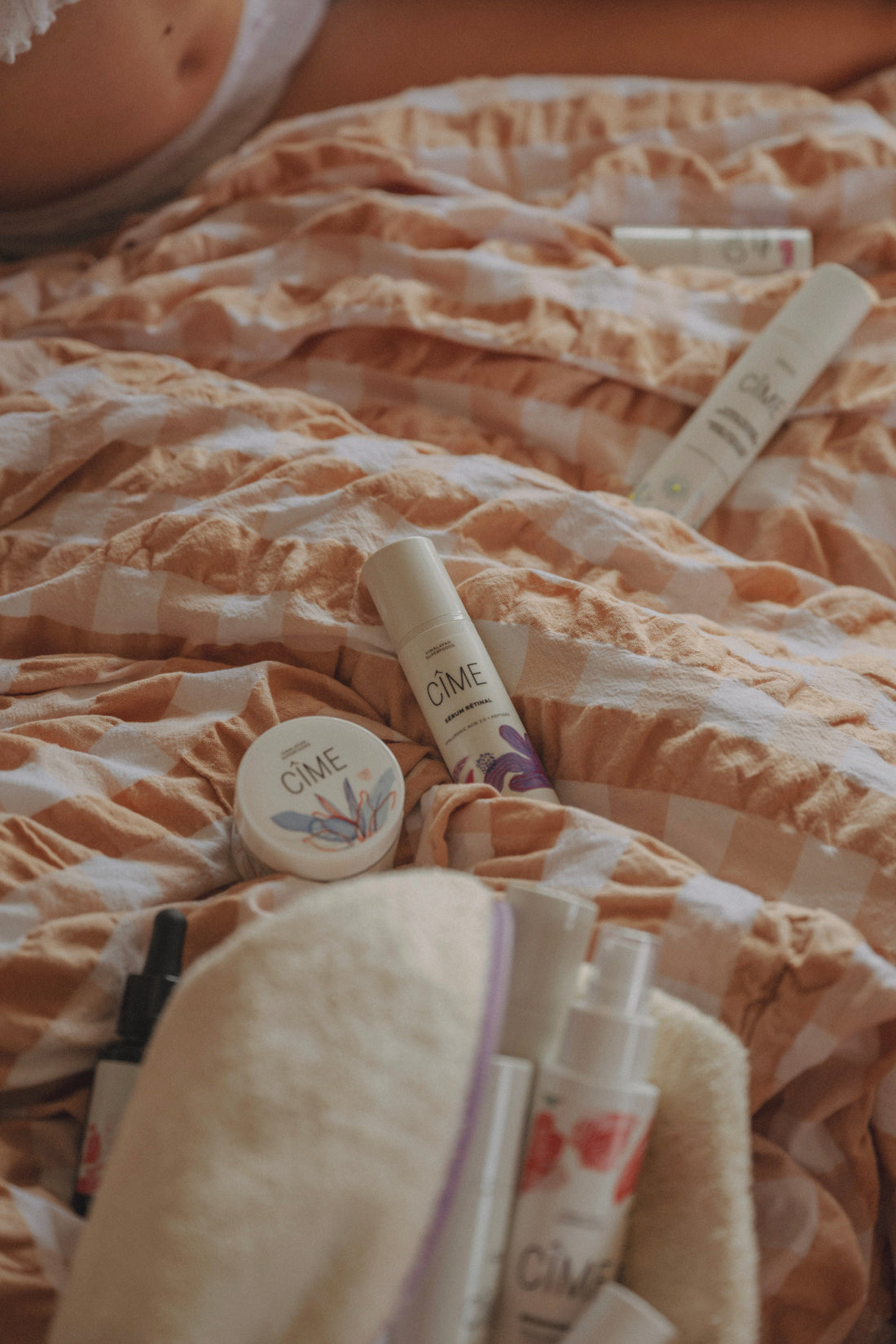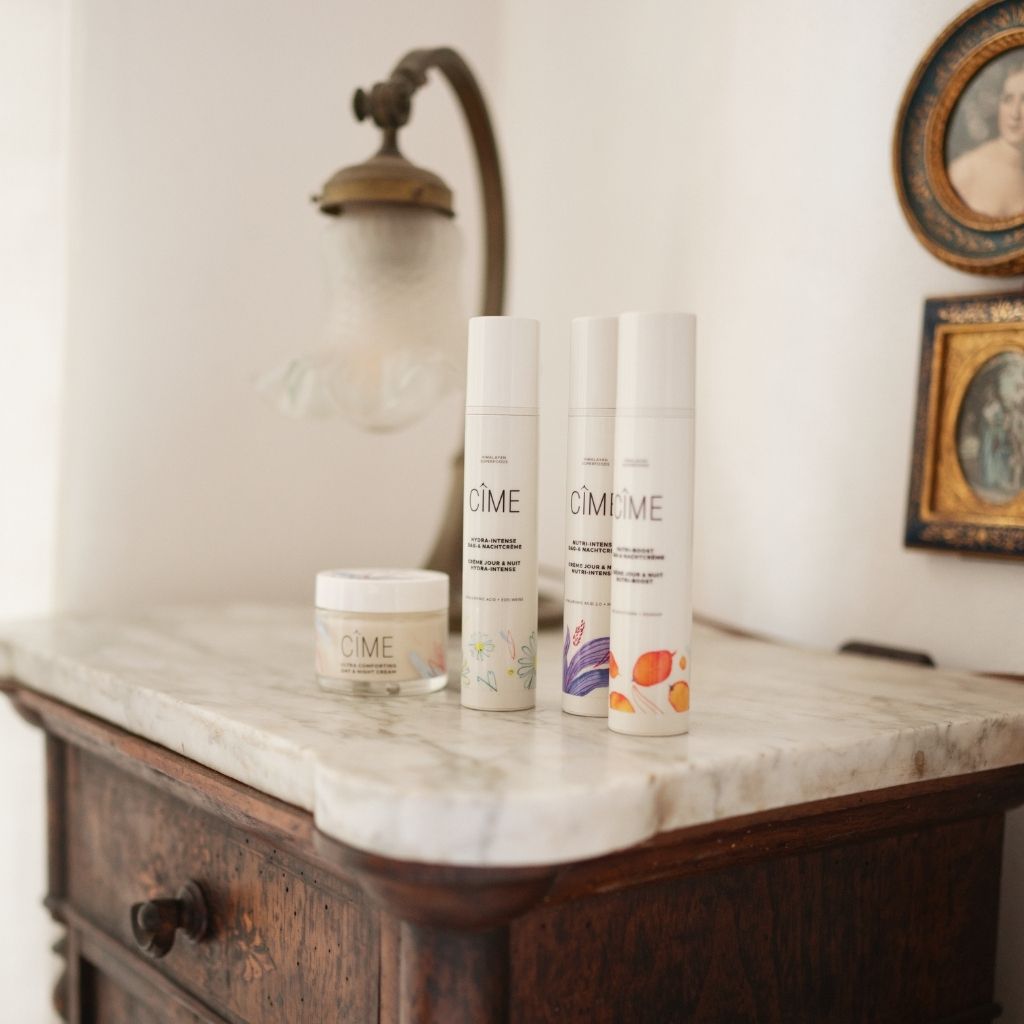
Alcohol in skincare?!
Share
You have probable already heard tips like “when a product tingles, it means that it is working”. Not true.
Alcohol in skincare; Myths and the truth
Alcohol, it’s a common used ingredient in beauty products. There is a lot of discussion about the fact whether it’s good or bad for your skin. Some advices suggest that it is a must in your skincare routine, other statements say that you should ban all kinds of alcohol. But what is the truth?
First of all, there are two types of alcohol used in skincare products: hard en soft ones. When people talk about the negative effects of alcohol, they are talking about the hard types like ethanol, methanol, isopropanol and enzyl alcohol. In contrary to popular believe, these alcohols won’t help you battling acne or oily skin. On the contrary, when alcohol is one of the main ingredients in your skincare product it will irritate, dry out and mess with the balance of your skin.
But the biggest negative side effect of alcohol is one on the long term. Somme essential skincare ingredients can’t do their job because of the high percentage of alcohol which results in a dull and faster aging skin.
Why do so many brand use alcohol?
Alcohol makes sure that the formula stays stable, kills bacteria en gives the cream a nice texture. Great for sales and marketing, not so great for your skin. There are so many softer (natural) ingredients that have the same positive effects without irritating or damaging the skin.
Good kinds of alcohol: Soft Alcohol
On the positive side: there are also good kinds of alcohol like cetyl alcohol and natural benzyl alcohol. Those have an emollient and nourishing effect. ‘Soft’ types of alcohol in skincare are well supported by the skin and have a positive effect (especially for people with dry skin because of the nourishing effect).
CÎME products only contain good types of alcohol that won’t damage your skin. Looking for a good alternative for your current alcohol containing cleanser? Oil cleanser is a mild oil cleanser that lets the natural oils of your skin do their job and removes traces of make up and pollution of your face.
Alcohol in skincare; Myths and the truth
Alcohol, it’s a common used ingredient in beauty products. There is a lot of discussion about the fact whether it’s good or bad for your skin. Some advices suggest that it is a must in your skincare routine, other statements say that you should ban all kinds of alcohol. But what is the truth?
First of all, there are two types of alcohol used in skincare products: hard en soft ones. When people talk about the negative effects of alcohol, they are talking about the hard types like ethanol, methanol, isopropanol and enzyl alcohol. In contrary to popular believe, these alcohols won’t help you battling acne or oily skin. On the contrary, when alcohol is one of the main ingredients in your skincare product it will irritate, dry out and mess with the balance of your skin.
But the biggest negative side effect of alcohol is one on the long term. Somme essential skincare ingredients can’t do their job because of the high percentage of alcohol which results in a dull and faster aging skin.
Why do so many brand use alcohol?
Alcohol makes sure that the formula stays stable, kills bacteria en gives the cream a nice texture. Great for sales and marketing, not so great for your skin. There are so many softer (natural) ingredients that have the same positive effects without irritating or damaging the skin.
Good kinds of alcohol: Soft Alcohol
On the positive side: there are also good kinds of alcohol like cetyl alcohol and natural benzyl alcohol. Those have an emollient and nourishing effect. ‘Soft’ types of alcohol in skincare are well supported by the skin and have a positive effect (especially for people with dry skin because of the nourishing effect).
CÎME products only contain good types of alcohol that won’t damage your skin. Looking for a good alternative for your current alcohol containing cleanser? Oil cleanser is a mild oil cleanser that lets the natural oils of your skin do their job and removes traces of make up and pollution of your face.
The CÎME team

